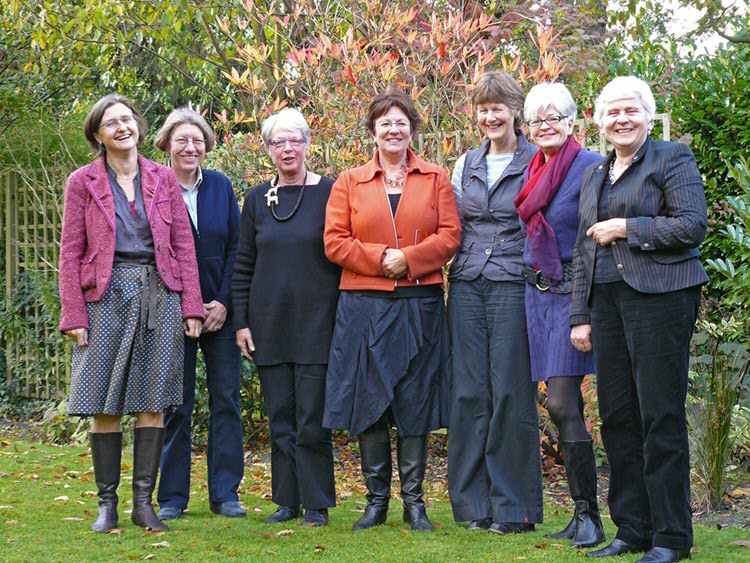Flower power

1967, fifty years ago, a special year. Participation, opposition to authority, occupations of universities in Germany, France and also here. Sit-ins were held and the flowerpower took effect. Peace, love and another way of thinking got stronger.
Together with many others we, 7 young women, started to study sociology in Groningen. On the Grote Markt there was a love-in event, dancing, hugging people were waving around across the square. There were so many flowers stuck behind my glasses that they fell on the ground. I could not see anything without glasses and shouted in panic. As a man dashed the bystanders to the ground, luckily, with some bending work, the glasses could be used again. Our first lecture was by Professor Bouman, one of the founders of sociology in the Netherlands. Freedom of values was at the heart of sociological research. A lot can change in fifty years, because now you see the correct recognition of the values that influence research. Inspection is now called participation, except for the arrival of asylum seekers. Then it's more intriguing. And there is not much talk about love and peace anymore.
Although we became members of different student associations, we quickly found each other. We studied together, ate together and learned to know each other's families. But we talked a lot about the study and all the developments that changed the world. The computer center was available in Paddepoel.
After graduation we spread across the country, but we kept close contact with each other. I stayed in Groningen because I was asked to participate in a mass media research. Back then, it was all about the newspapers. It was a nice research with surprising results. For example, the imago of the newspapers appeared to be correct in the Dutch news, but in the case of foreign news the message was completely changed. The sequel was made in Leiden, namely about cable TV. Enzensberger had a theory that people could feel more connected to each other in the new neighborhoods through the ability to interact (in the case of cable TV), and that people would feel more involved in the municipal policy. Enzensberger was far ahead his time: cable television was a failure in the engagement view, but now we are seeing online engagement across the world.
Meanwhile, we had all found a partner and seven weddings were celebrated that were not complete without the other sociologists. We got children and our reunions were arranged in youth hostels. In addition, we also came together with only the women once a year. In between there were many "loose" contacts. One of us graduated and we were all there. Even in illness and death, we still support each other.
In a still changing world we maintain the tradition: yearly reunion with the partners and once with the women alone. We still live throughout the country, from Texel to Eindhoven and from Zeegse to Arnhem and Oosterbeek, with Deventer in between. We have had all kinds of functions in research, policy and education and are now retired. Looking back, we all say that the study of sociology in Groningen has given us a rich and interesting life for fifty years and that we have contributed to society in various areas.
M. Palm, Sociology 1973 @University of Groningen #UGCommonGround #UGalumni #tbt
